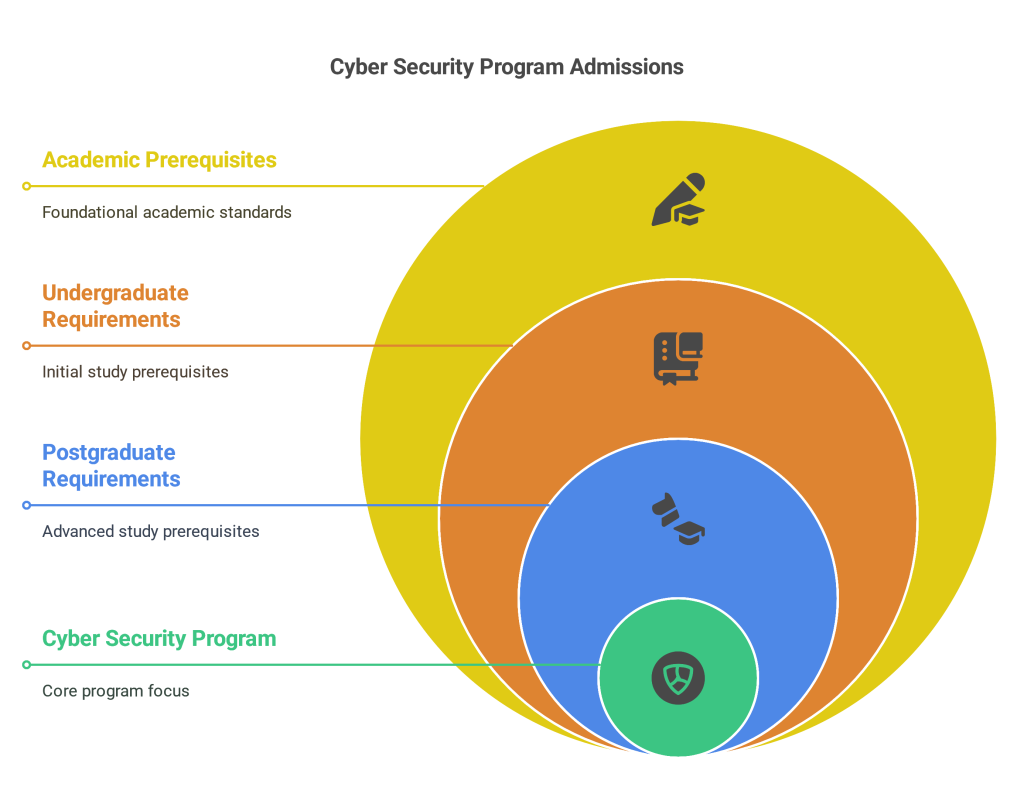Birmingham University offers top-rated cyber security programs that combine hands-on training, expert faculty, and industry recognition—making it one of the best UK universities to launch a successful cyber security career.
Whether you’re just starting out or looking to level up your skills, choosing the right university for cyber security can feel overwhelming. With so many programs, specializations, and entry requirements to compare, it’s easy to get lost. But if you’re considering Birmingham University, you’re already on the right track. Their cyber security degrees are respected across the UK and beyond for blending academic rigor with real-world application. In this guide, we’ll break down everything you need to know—program options, admissions, tuition, career paths, and more—so you can make a confident, informed choice.
Introduction to Cyber Security at Birmingham University
Cyber security is all about protecting computers, networks, and data from digital attacks. It’s one of the fastest-growing fields today, and the demand for skilled professionals is higher than ever. Whether it’s a small business or a large government agency, every organization needs cyber security experts.
Birmingham University is a top choice for students who want a strong start in this field. Known for its cutting-edge research and real-world training, the university offers programs that prepare students to tackle cyber threats head-on. It’s also recognized for its partnerships with industry leaders and national security organizations like the UK’s National Cyber Security Centre (NCSC).
If you’re interested in technology, problem-solving, and protecting people online, cyber security could be the perfect fit. Birmingham University helps you gain the skills, knowledge, and experience to succeed in this exciting career.
Overview of Cyber Security Programs Offered
Undergraduate Degrees
Birmingham University offers a BSc Cyber Security program that gives students a solid foundation in computer science and cyber defense. This course is ideal for students who want to start their career right after graduation or continue into advanced studies.
Key features include:
- Core subjects like programming, system architecture, and cyber operations.
- Hands-on projects and lab work.
- Optional year in industry for work experience.
The undergraduate degree is certified by the NCSC, which means it meets high national standards for cyber education.
Postgraduate Degrees (MSc Cyber Security)
The university also offers a Master’s in Cyber Security for students who want to deepen their knowledge or switch careers into this field. This course is perfect for graduates from computer science, engineering, or related backgrounds.
Highlights include:
- Advanced topics like digital forensics, penetration testing, and network security.
- Research-based learning with access to cutting-edge tools.
- Close ties to government and industry for job placements.
Online and Part-Time Options
For those who need flexibility, Birmingham offers online and part-time learning through its continuing education and professional development programs. These are designed for working professionals who want to upskill without leaving their jobs.
Options include:
- Short courses in topics like ethical hacking and cyber risk management.
- Online master’s modules.
- Industry-recognized certifications.
You can explore these flexible learning choices through the University of Birmingham Online platform.
Key Curriculum Highlights
The cyber security programs at Birmingham are designed to be hands-on and practical, while still giving students a strong academic foundation. Here’s what you’ll study:
Core Subjects and Specializations
| Core Topics | Specializations |
|---|---|
| Network and System Security | Penetration Testing |
| Cryptography | Cloud Security |
| Operating Systems | Malware Analysis |
| Computer Programming | Risk and Compliance |
| Information Assurance | Digital Forensics |
Courses are updated regularly to match trends in global cyber threats. Students learn using real-world case studies and simulations.
Lab Work and Hands-On Training
Birmingham has state-of-the-art cyber labs where students practice:
- Penetration testing in simulated environments.
- Network monitoring and intrusion detection.
- Secure software development.
You’ll also take part in capture-the-flag challenges and team projects that mimic real job scenarios—skills that employers love to see.
Research Opportunities and Dissertation Requirements
In postgraduate programs, students complete a research project or dissertation on a current cyber security issue. Some recent topics include:
- AI in threat detection
- Blockchain for data privacy
- IoT device vulnerabilities
These projects are guided by faculty who are active researchers in the field. Many students also collaborate with partners like the Alan Turing Institute and major tech companies during their research.
Admissions & Entry Requirements

Academic Prerequisites
To get into a cyber security program at Birmingham University, students need strong academic performance in relevant subjects. For undergraduate applicants, typical offers include:
- A-levels: AAA–ABB, including Mathematics or Computer Science.
- International Baccalaureate (IB): 34–36 points with higher-level Math.
- U.S. High School Diploma: GPA of 3.5+ with AP courses in math or computing.
For postgraduate programs, applicants usually need:
- A 2:1 (or equivalent) in Computer Science, Engineering, or a related subject.
- Strong programming skills and understanding of networks or systems.
The university also accepts equivalent qualifications from around the world. You can check the full list of accepted international qualifications on the University of Birmingham’s admissions page.
English Language Proficiency
If English is not your first language, you’ll need to prove your skills through a test. Accepted tests and minimum scores include:
| Test | Undergraduate Minimum | Postgraduate Minimum |
|---|---|---|
| IELTS Academic | 6.0 overall (5.5 in each band) | 6.5 overall (6.0 in each band) |
| TOEFL iBT | 80 overall | 88 overall |
| Pearson PTE Academic | 64 overall | 67 overall |
| Cambridge English (C1) | 169 overall | 176 overall |
Learn more about accepted language tests on the UK government’s visa requirements page.
Application Deadlines and Process
For undergraduate degrees, students apply through the UCAS platform. Key deadlines:
- Mid-January: Main UCAS deadline for most UK universities.
- Late June: Final application deadline (clearing may be available later).
For postgraduate programs, applications are submitted directly on the University of Birmingham’s online portal. Applications are reviewed on a rolling basis, but early submission is recommended—especially for international students who need a visa.
Make sure to prepare:
- Academic transcripts
- Personal statement
- Letters of recommendation (for postgraduates)
- Proof of English proficiency
Tuition Fees and Scholarships
Cyber security degrees at Birmingham are competitively priced for a UK top-tier university. Here’s a quick breakdown of tuition costs:
| Program Type | UK Students (Per Year) | International Students (Per Year) |
|---|---|---|
| Undergraduate (BSc) | £9,250 | £25,860 |
| Postgraduate (MSc) | £10,530 – £13,410 | £27,540 |
Fees may vary slightly depending on course options and year of entry. The most accurate and updated fee info is available on the University’s tuition fee page.
Available Scholarships and Funding Options
Birmingham offers a range of scholarships to help with costs:
- Global Masters Scholarship – Up to £2,000 for international students entering a postgraduate program.
- Birmingham Undergraduate Outstanding Achievement Scholarship – £2,500 for international students with excellent academic results.
- UK Government Student Loans – Available for eligible UK students (learn more at gov.uk).
Additional support may be available for students from low-income families, students with disabilities, or those pursuing research. Check with the University’s funding search tool for personalized options.
Career Opportunities After Graduation

Birmingham University’s cyber security graduates are in high demand across the UK and beyond. The programs are built in partnership with major employers, so students gain both the skills and the network to launch their careers.
Popular job roles include:
- Cyber Security Analyst
- Penetration Tester
- Information Security Manager
- Digital Forensics Investigator
- Cyber Risk Consultant
These roles can be found in industries like finance, healthcare, tech, and government. According to Prospects.ac.uk, entry-level salaries in cyber security often start around £30,000 and can rise to £60,000+ with experience.
Birmingham also ranks high in graduate employability. The university’s career service offers:
- Job fairs with tech firms and security agencies
- Resume and interview workshops
- One-on-one career coaching
Many students find jobs through industry placements during their studies. Others go on to work for companies like Deloitte, IBM, GCHQ, and PwC.
University Accreditations & Industry Partnerships
Birmingham University’s cyber security programs are officially certified by the UK’s National Cyber Security Centre (NCSC), a part of GCHQ. This means the university meets high standards for teaching key topics in cyber defense, risk management, and digital security. NCSC-certified degrees are respected by employers and government bodies across the UK.
In addition to national recognition, the university is a member of the Alan Turing Institute, the UK’s leading center for data science and artificial intelligence. This opens up opportunities for research, networking, and access to cutting-edge projects.
Students also benefit from partnerships with major tech companies and public sector agencies. Some partners include:
- IBM
- Microsoft
- Deloitte
- BT Group
- NHS Digital
- West Midlands Police Cyber Crime Unit
These partnerships bring guest lectures, internship opportunities, and access to real-world problems students can help solve. As a result, graduates often leave with practical experience that gives them an edge in the job market.
Birmingham as a Student City
Birmingham is the UK’s second-largest city, offering the perfect mix of modern living, rich history, and diverse culture. For students, it’s a vibrant and affordable place to live and study.
Living in Birmingham
Student accommodation is widely available across the city. Birmingham University offers on-campus housing and helps students find private rentals nearby. Housing costs range from £110 to £180 per week, depending on the type and location.
The cost of living in Birmingham is lower than in London or Oxford. Students typically spend about £800–£1,000 per month, including rent, food, travel, and entertainment. You can use the UKCISA cost calculator to estimate your living expenses more accurately.
Tech and Cyber Security Ecosystem in the Region
Birmingham is quickly becoming a digital hub. The city is part of the West Midlands Cyber Cluster, which supports innovation, jobs, and training in cyber security. Local government initiatives also attract start-ups and international tech companies to the region.
This means students have a chance to attend tech meetups, apply for internships, and network with industry professionals—all without leaving the city. It’s a smart choice for students who want to build a tech career in a fast-growing environment.
Frequently Asked Questions
Is a degree in cyber security worth it?
Yes. With cyber threats rising, skilled professionals are needed more than ever. A degree from a top university like Birmingham opens doors to well-paying, future-proof careers.
What are the career prospects after graduation?
Graduates find jobs quickly in both the public and private sectors. Roles range from security analyst to cyber consultant, and salaries are competitive. You can also pursue certifications like CompTIA Security+ or CISSP to boost your credentials.
Can international students apply to the cyber security programs?
Absolutely. Birmingham University welcomes students from over 150 countries. They offer support with visas, housing, and adapting to UK student life. Learn more on the international admissions page.
Are there scholarships for cyber security students?
Yes, especially for international and postgraduate students. The Global Masters Scholarship, for example, provides up to £2,000. You can explore all options using the University’s funding search tool.
Conclusion
Birmingham University stands out as one of the top places in the UK to study cyber security. With NCSC-certified programs, strong industry partnerships, and real-world training, students graduate with the skills and confidence to take on cyber threats in any sector. Whether you’re planning to work in finance, tech, healthcare, or government, your degree from Birmingham will be well-respected by employers.
The university also offers flexible options, support for international students, and a welcoming city filled with job opportunities and innovation. From strong academic teaching to hands-on lab work, everything is designed to prepare you for a successful career in cyber security.
If you’re ready to join one of the most in-demand fields in tech, Birmingham University is a smart and trusted place to start. Learn more and apply directly through the University of Birmingham’s official admissions page to begin your journey.